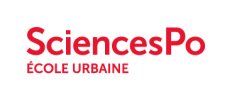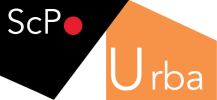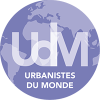Portrait
Portrait of David, consultant
Posted on | Alumni Portrait
Portrait by Céline Laval on February 15, 2013
David Rottmann (class of 2011) followed the STU program somewhat by chance. Although he describes himself as passionate about sociology and more generally about the theoretical dimension of the social sciences, his choice of the master's program did not result from a very specific professional project at the outset. Moreover, to the question "consulting, a non-choice?" he would rather answer in the affirmative, while recognizing that it is a very formative and enriching field in which he enjoys himself today.
For his end of master internship, David carried out a consulting mission on territorial reform within the Regional Council of Midi-Pyrénées. This experience was not completely conclusive since the project took a long time to set up and David could only attend its launching. Nevertheless, he was able to learn about the vagaries of political agendas and the constraints of working in the local public service.
Following the master, David was hired in a consulting firm, positioned on four poles:
- Human resources
- Human resources
- Health and support for hospitals (within the framework of hospital reform)
- Public strategy, mainly focused on higher education and research (law of autonomy and grouping of universities), competitiveness clusters and economic development
David describes his firm as medium-sized with about 40 employees, 4 of whom are direct graduates of the STU master's degree! The others are mainly from engineering, business school and ENS. In terms of positioning on the consulting market, the firm is rather more expensive than its competitors, which David explains by a conscious strategy of quality in order to respond very exactly to the orders of the customers without industrializing the processes and by always going to seek the innovations and the most buoyant markets of the moment.
He works more in the public strategy department of the firm and his current missions are related to the setting up of business clusters in Evreux and in the Gironde region, and to the support of the ANR industrial chair project in Epinal. But he also has a mission in the HR pole and accompanies two hospitals in the merger of their HR functions.
For those who wonder if the STU master's courses are really useful in the consulting profession, David answers in the affirmative: the STU master's degree trains very well in the understanding of economic development issues and in the knowledge of local authorities, for example - although there is a slight downside in terms of innovation.
Finally, as far as working conditions are concerned, there is nothing new under the sun: the working rhythm of a consultant is very variable and depends on sales (orders). The average working hours are 9am - 7pm with a trip every two weeks or so. There is a high turnover in consulting in general because it is a demanding job, which can be stressful for some and in which one is often in representation and under pressure in front of the client, but also because consultants with 2 or 3 years of experience are very sought after. Nevertheless, David is very happy in his job today and does not regret having fallen, perhaps a little by chance, in the world of consulting.
David's advice
- Be willing and show it, express how you feel and especially when you find your work useful and/or interesting.
- If you are asked how much you want to earn in a job interview, say, "I'd rather take an offer" (and choose your answer from the top of the range, of course)! But it doesn't work every time, like all salary negotiation strategies. If you can get information on the salaries in effect beforehand, it's better!
Portrait of Doriana Kostic (STU class of 2007) Process and Quality Manager at Plaine Commune Habitat
Posted on June 10, 2013
Doriana is doing her end-of-study internship at Nexity, in the Strategic Marketing Department of the Housing Division. She is conducting a study on the develop…
Frank Zschiegner - STU 2006 - in charge of economic development for the city of Vélizy-Villacoublay
Posted on March 21, 2013
Between music and concerts, Frank studied geography in Germany, specializing in economic geography. He did a one-year exchange at Sciences Po as part of the In…
 English
English  Français
Français 




